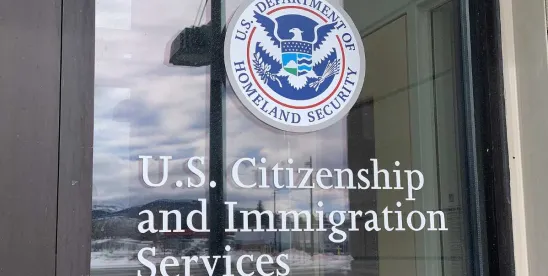On April 1, 2024, U.S. Citizenship and Immigration Services (USCIS) began implementing a newly overhauled fee schedule, along with substantive changes to several of its forms used to petition or apply for employment-based immigration benefits. These changes stem from the agency’s January 2024 final rule outlining the fee increases and procedural changes, which include:
- In a departure from the prior, simpler fee schedule, a detailed and tiered fee schedule based on various factors, including visa type, employer type, and size (number of employees).
- The introduction of an “asylum fee,” which now applies to most employment-based filings made on Forms I-129 or I-140 and is meant to support the agency’s efforts in improving its processing of a historic backlog of asylum applications. The asylum fee also varies depending on visa type and employer type/size, further adding to the confluence of new factors practitioners must take into account when filing a U.S. immigration benefit application or petition with USCIS.
- Updated filing locations and, notably, certain filings rerouted from monitored Service Centers to “Lockboxes,” which tend to take a longer time to process the filings received.
- New editions of many common employment-based immigration benefit forms, including Forms I-129, I-140, I-526, and I-829.
In line with the added complexity of the filing process resulting from the April 1 changes, practitioners have reported considerable delays in issuance of I-797 receipt notices, which USCIS issues to provide the petitioner/applicant and its legal representative with a case number and official confirmation of acceptance of the filing. While the specific reasons for the delays vary between cases, USCIS may need additional time to complete its intake of filings and to ensure compliance with the new requirements, given the scale of the April 1 changes. While some cases face delays, others are being “rejected” for a deficiency, sometimes resultant from erroneous observations by USCIS.
From a practical standpoint, this means that clients should be prepared for delays in receipt notice issuance, which can sometimes extend for up to and over eight weeks for certain filing types. Additionally, USCIS has generally not been responsive to inquiries placed in connection with receipt notice delays. Filers may track checks to ensure they are cashed by USCIS (an indication of case acceptance), but even filing fee check cashing has seen delays. Where available, filers may choose to submit eligible applications online for a quicker receipting process, but that may present its own set of challenges. First, only a narrow subset of forms are currently eligible for online filing. Additionally, electronic filings have only recently been implemented by USCIS and are subject to separate sets of considerations, like account access obstacles and document upload issues, among other observed, as well as unforeseeable, risks associated with the process as USCIS finetunes its electronic filing procedures and gradually expands eligible filing types.
Takeaways for Petitioners and Applicants
- Since some receipt notices are required for the ability to travel internationally and re-enter the United States, for instance I-751 or I-829 receipt notices, which temporarily extend conditional green card validity, it is important to take these delays into account when planning international travel. This means opting for flexible or cancelable flights or accommodations where available. As noted above, USCIS is generally not responsive to inquiries related to its receipting process and waiting for the receipt to be issued and delivered via USPS is generally the only available option.
- Employers filing for H-1B transfers should consider waiting for the receipt notice prior to onboarding the new employee to ensure the case is lawfully filed as of the employee’s start date.
- Receipts are also often utilized to demonstrate timely filing for immigration benefit extensions; filing early may help to ensure that a receipt is in hand prior to the expiration of the current I-94 or other expiring immigration benefit.
Jack Jrada also contributed to this article.



 />i
/>i

